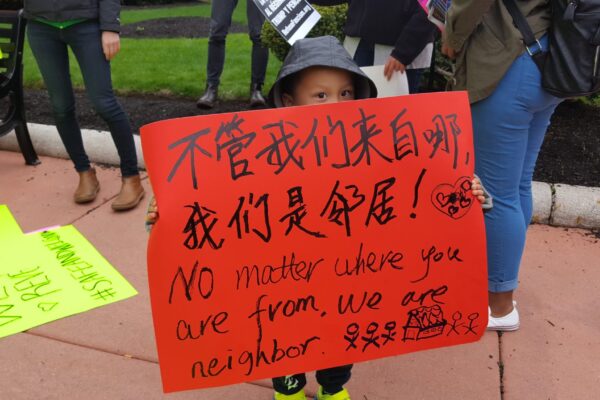Cities and towns across Massachusetts are reacting to federal attacks on immigrants by creating policies of their own to protect their communities from becoming part of President Trump's deportation force. By passing ordinances, cities become sanctuaries for immigrants who can live without fear that their local law enforcement officials will act on behalf of Immigration and Customs Enforcement (ICE), the agency responsible for deporting tens of thousands of people each year. Whether you call it a Sanctuary City, a Welcoming Resolution, a Safe Community, or a Freedom City initiative, the policies send a clear message: immigrants are welcome here and they should not fear their local government.
In response to the push for sanctuary ordinances, WBUR spoke with Laura Rótolo, our staff counsel and community advocate, about work being done across the state and our online toolkit for people who want to organize a sanctuary ordinance where they live.
"Once the new administration took office, we saw this trend where a lot of cities and towns wanted to get in on the action, wanted to pass really good, protective policies," said Laura Rótolo, staff counsel at the American Civil Liberties Union of Massachusetts.
She says the chapter has always had resources for people interested in establishing policies in their towns. But recently, interest in becoming a sanctuary city has soared.
"So we decided to put all of our knowledge into one place and create a toolkit," she explained.
Now, the sanctuary city toolkit lives online. Rótolo says people in Massachusetts, including elected officials, activists and individual residents are using it.
"We're seeing new activists who just want to take a stand against the Trump administration's immigration policies, who want to do something for the immigrants in their community, whereas they may no have really thought of it before," she said. "So we're seeing newly mobilized individuals."
Listen to the interview here.
Visit our toolkits page for more resources.
Learn more about our immigrants' rights work.
Stay Informed
Sign up to be the first to hear about how to take action.
By completing this form, I agree to receive occasional emails per the terms of the ACLU’s privacy statement.
By completing this form, I agree to receive occasional emails per the terms of the ACLU’s privacy statement.


